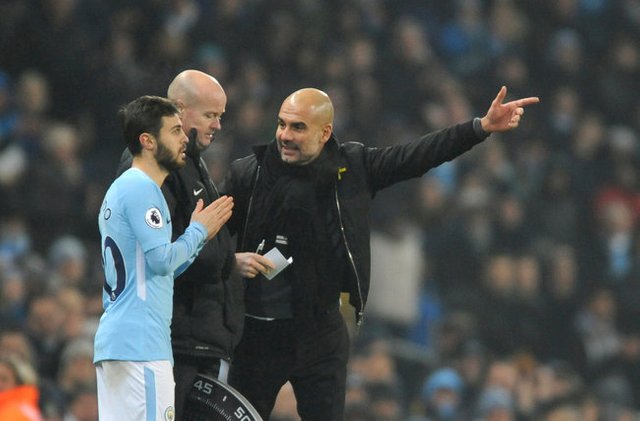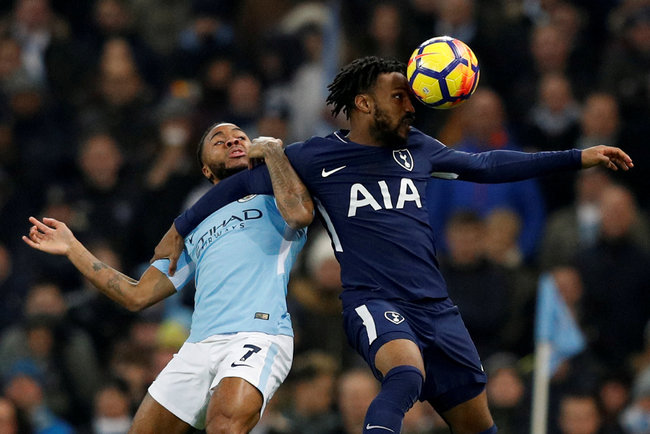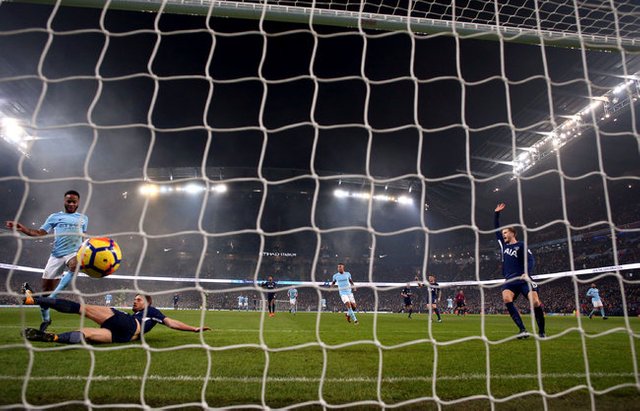
MANCHESTER, England — The Premier League would be different. Everyone said so.
Pep Guardiola might have arrived in England in the summer of 2016 with three Spanish and three German titles to his name, but those honors seemed to come with an asterisk.
He had always managed heavy favorites: Barcelona and Bayern Munich. He had triumphed only in leagues that looked like one- or two-horse races. Barcelona has just one serious, consistent rival: Real Madrid. Bayern does not even have that.
Trying to succeed at Manchester City would be an altogether more challenging proposition, he was told. England could offer five other clubs that would regard themselves as genuine contenders for the championship, with the money and the ambition and the clout to stand up to Guardiola and to City. There would be no plain sailing in the professed most competitive league in the world.
His predecessors, like Roberto Mancini, knew it: “As coach of Barcelona, he had Messi, Iniesta, a phenomenal team. Then he went to Germany, where Bayern always wins, and therefore he did not have a difficult life.”

Veterans of the league, like Guus Hiddink, knew it: “In Germany, with Bayern, you can be assured in September who will be the new champion.” So did rather newer arrivals. “There is not a second team in Germany, though we tried at Borussia Dortmund,” Liverpool’s Jürgen Klopp said.
Image
Tottenham’s Danny Rose, right, battled Manchester City’s Raheem Sterling for the ball.CreditPhil Noble/Reuters
Retired players, news media columnists and even agents knew it: Apparently “the grandfather” of Dimitri Seluk, representative of Manchester City midfielder Yaya Toure, “could have won the league” with the Bayern team Guardiola had inherited. And, of course, his old nemesis José Mourinho knew it, referring with his typical sledgehammer subtlety to Germany as a country where “the kit man can be coach and win the title.”
You have 4 free articles remaining.
Subscribe to The Times
That was not the case in England. It would be in England where soccer found out exactly how good Guardiola was.
Almost halfway through his second season, Guardiola’s Manchester City team holds a 14-point lead at the top of the Premier League. (It will be 11 again if Manchester United wins on Sunday.) It has taken 52 points from an available 54. It has won 16 games in a row, the first of a number of records it is on course to break this season.
And it has now faced all five of its notional rivals, dispatching each and every one of them in some considerable style. Tottenham Hotspur — handsomely beaten, 4-1, in Manchester on Saturday — was the last of them, and by no means the easiest. For a few minutes at the start of each half, Mauricio Pochettino’s team — spirited, assertive — appeared to be able to cope with City. It did not last. Tottenham, too, was eventually swept away.
The same has happened to Liverpool and to Arsenal here at the Etihad Stadium, neither truly able to lay a glove on the league leader. Though the scores have been less impressive, the road victories against Chelsea and Manchester United were equally emphatic, City simply too slick, too quick, too strong for its supposed peers. At times, it has appeared as if Guardiola’s team is playing a different game.
Last week, a statistic started to float around the Premier League’s ether that Arsenal, Tottenham and Liverpool are all closer, in terms of points, to the teams battling relegation than to the top of the table.
It is typical of much of the reaction to City’s breezy superiority this season: to focus on the flaws of the teams unable to match the pace of Guardiola’s team. The assumption is that, as all of these sides are equals, those that have fallen by the wayside have been scuppered by some endemic weakness, by some wrong that must be righted.
ADVERTISEMENT
Mourinho’s Manchester United is too reactive, particularly in showpiece games, or its squad is too thin on quality, too light on quantity, to cope; Chelsea is missing the aggression of Diego Costa and the steel of Nemanja Matic, or is too reliant on Eden Hazard; Tottenham is little more than “the Harry Kane team,” as Guardiola once, slightly clumsily, put it; Liverpool cannot defend; Arsenal remains unavoidably Arsenal.
There is more than a kernel of truth to all of those charges, of course. And yet the shortcomings of City’s rivals are not why it has streaked so far ahead, so quickly. With the possible exception of Chelsea, all of those teams are, most likely, at least a little better than last season; certainly, none are significantly worse.
The fact that it feels as if perhaps they are should be read as testament to the distorting effects of excellence: rare, genuine, exhilarating excellence. This season’s Premier League title race — if race is not too much of a stretch — is being defined not by the flaws of five teams, but by the brilliance of one.

Guardiola, during his first season in England, grew to resent just how frequently he was asked whether he would now, finally, agree that the Premier League was the toughest in the world. Eventually, he snapped, lapsing into something of a sarcastic sneer — “Congratulations, guys, it really is the toughest,” he said — but for a long time, he demurred.
“I do not think going to the Bernabéu, to Bilbao, to Seville is so easy,” he said, or words to that effect, whenever the question came up, which was most weeks. He has always been aware of the sense in England that anyone could have won, and easily, with Barcelona and Bayern Munich; of the simmering undertone that all of his achievements somehow did not quite count.
His view was that winning La Liga and the Bundesliga was not simple, but it was made to look so by two outstanding teams. Barcelona did not claim 99 points in a single year because all of its opponents were terrible; Bayern did not win the title by 19 points because it did not have to try.
Instead, the excellence of his sides distorted the image of all the others. The presence of something extraordinary made everything else, no matter its qualities, appear extremely ordinary indeed.
England, he was told, would be different. Everyone said so: It would be more competitive than Spain and Germany, more chaotic, less prone to seeing one team stream away and win the title with games to spare.
It has taken a little longer than he might have liked — and, as he always makes a point of highlighting, nothing is secured yet — but Manchester City is starting to challenge all of that established thinking. Maybe La Liga and the Bundesliga are not as weak as was assumed. Maybe in England, as in Spain and Germany, everyone looks bad compared with the exceptional. Maybe the Premier League is not different at all.
great post do you think the premier league is pretty much a city win at this stage?
Downvoting a post can decrease pending rewards and make it less visible. Common reasons:
Submit
Hi! I am a robot. I just upvoted you! I found similar content that readers might be interested in:
https://www.nytimes.com/2017/12/16/sports/soccer/manchester-city.html
Downvoting a post can decrease pending rewards and make it less visible. Common reasons:
Submit
Thankyou
Downvoting a post can decrease pending rewards and make it less visible. Common reasons:
Submit